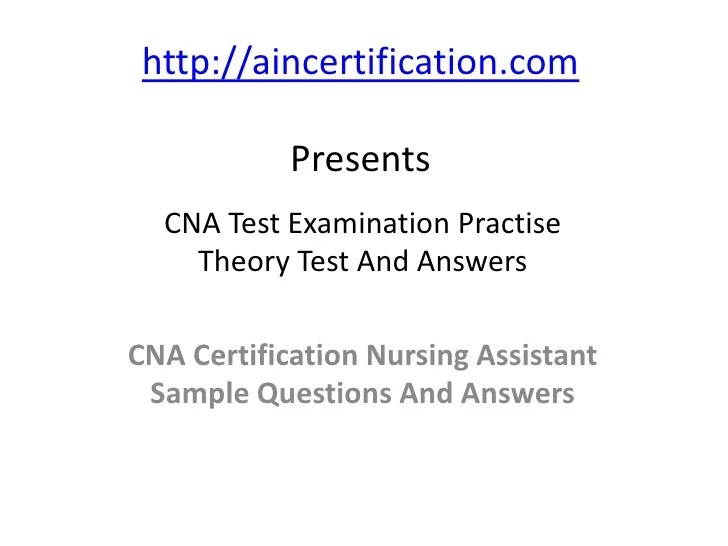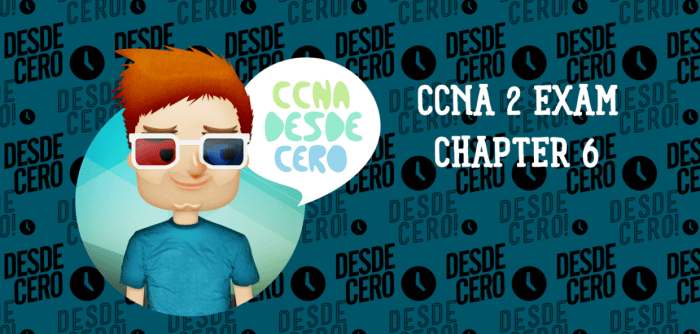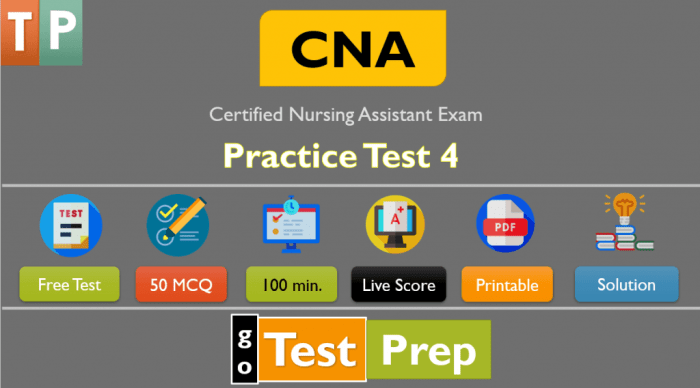Cna chapter 6 exam answers – Prepare to conquer the CNA Chapter 6 exam with our comprehensive guide! This exclusive resource provides a wealth of exam preparation strategies, sample questions, and expert explanations to help you achieve success.
Delve into the core concepts of Chapter 6, master the exam format, and gain valuable insights into the critical thinking skills required for a stellar performance.
Chapter 6 Overview

Chapter 6 delves into the fundamental principles of assessment and care planning for individuals across the lifespan. It provides a comprehensive framework for understanding the assessment process, including gathering data, interpreting findings, and developing individualized care plans.
This chapter is pivotal in the course as it equips healthcare professionals with the knowledge and skills necessary to provide holistic and patient-centered care. Through a systematic approach to assessment, nurses can identify the unique needs of individuals, prioritize interventions, and evaluate outcomes to ensure optimal patient outcomes.
Types of Assessment
Chapter 6 introduces various types of assessments commonly used in healthcare settings, including comprehensive, focused, and emergency assessments. Each type serves a specific purpose and requires different approaches to data collection and interpretation.
- Comprehensive Assessment:A thorough evaluation of an individual’s physical, psychological, social, and environmental factors, typically conducted upon admission to a healthcare facility.
- Focused Assessment:A targeted assessment of a specific problem or concern, focusing on gathering data related to a particular body system or issue.
- Emergency Assessment:A rapid evaluation conducted in emergency situations to identify life-threatening conditions and prioritize immediate interventions.
Exam Preparation
Preparing for your CNA Chapter 6 exam is crucial to ensure success. To help you ace the exam, here are some tips and strategies to guide you through the preparation process.
Exam Format and Structure
The CNA Chapter 6 exam is typically divided into multiple-choice questions that cover various aspects of the material covered in the chapter. Understanding the exam format and structure will help you allocate your study time effectively.
Identifying Important Topics
To focus your study efforts, it’s essential to identify the key topics that are likely to be covered on the exam. Refer to your course materials, review past exam papers (if available), and consult with your instructor or classmates to determine the most important concepts.
Effective Studying Techniques
Adopting effective studying techniques can significantly enhance your preparation. Engage in active recall by testing yourself on the material regularly, utilize flashcards to memorize key terms and concepts, and form study groups to discuss and clarify complex topics.
Sample Exam Questions

The following sample exam questions assess your comprehension, application, and critical thinking skills on the core concepts covered in Chapter 6.
Assessment of Comprehension
- Define the concept of informed consent and explain its importance in healthcare.
- Describe the key elements of a valid informed consent document.
- Discuss the ethical considerations related to informed consent in research involving human subjects.
Assessment of Application
- Provide an example of a situation where obtaining informed consent is particularly challenging, and explain how you would approach this situation.
- Develop a plan to improve the informed consent process in a specific healthcare setting.
- Analyze a hypothetical case study involving an informed consent issue and provide a recommendation for ethical resolution.
Assessment of Critical Thinking
- Examine the strengths and weaknesses of the current informed consent process in healthcare.
- Discuss the potential impact of technology on the informed consent process.
- Consider the ethical implications of using social media to obtain informed consent for healthcare interventions.
Answer Key and Explanations
This section provides the answer key for the sample exam questions along with detailed explanations to help you understand the relevant concepts and theories.
Sample Question 1
Question:Which of the following is a key responsibility of a CNA?
Answer:Providing basic nursing care to patients under the supervision of a registered nurse or licensed practical nurse
Explanation:CNAs are responsible for providing basic nursing care, such as bathing, dressing, feeding, and assisting with toileting, under the supervision of a registered nurse or licensed practical nurse.
Sample Question 2
Question:What is the most important factor to consider when providing care to a patient?
Answer:The patient’s safety
Explanation:The safety of the patient should always be the top priority when providing care. This includes taking precautions to prevent falls, infections, and other accidents.
Sample Question 3
Question:What is the best way to communicate with a patient who has difficulty speaking?
Answer:Use simple language, speak slowly and clearly, and be patient
Explanation:When communicating with a patient who has difficulty speaking, it is important to use simple language, speak slowly and clearly, and be patient. You may also need to use gestures or other non-verbal cues to help the patient understand.
Study Resources
Enhancing your comprehension of Chapter 6 material is crucial, and various study resources can aid in this endeavor. These resources complement the course material, providing diverse perspectives and reinforcing key concepts.
Cracking the CNA Chapter 6 exam can be a breeze with a little extra help. While you’re at it, why not take a break and challenge yourself with a crossword puzzle? Check out the boy of wood crossword clue for a fun mental exercise.
Once you’re back on track, don’t forget to ace that CNA Chapter 6 exam with flying colors!
Exploring textbooks, online articles, and videos offers additional insights, practical examples, and visual aids that cater to different learning styles.
Textbooks
- Nursing Assistant: A Nursing Process Approachby Barbara Acello and Sandra J. Alexander provides a comprehensive overview of nursing assistant responsibilities, including essential skills and knowledge for Chapter 6 topics.
- Geriatric Nursing: Principles and Practiceby Judith Allender, Marcia Kamen, and Patricia Warner covers aging-related aspects relevant to Chapter 6, such as cognitive and functional changes.
Online Articles
- “The Role of the Nursing Assistant in Providing Care to Older Adults”from the National Association of Health Care Assistants (NAHCA) offers insights into the specific responsibilities of nursing assistants in geriatric care.
- “Cognitive and Functional Changes in Older Adults”from the Alzheimer’s Association provides detailed information on the cognitive and functional challenges faced by older adults.
Videos
- “Nursing Assistant Training: Caring for Older Adults”from MedlinePlus provides a visual demonstration of nursing assistant skills in geriatric care.
- “Cognitive Impairment in Older Adults”from the National Institute on Aging (NIA) presents a clear explanation of cognitive changes and their impact on daily life.
Interactive Exercises

Interactive exercises and simulations provide students with opportunities to actively engage with the material and apply the concepts of Chapter 6. These exercises can be used to assess students’ understanding of the material, reinforce learning, and provide feedback on their progress.
When using interactive exercises, it is important to provide clear instructions to students and to ensure that the exercises are relevant to the learning objectives. Exercises should also be challenging but not overly difficult, and they should provide students with opportunities to practice the skills they are learning.
Sample Interactive Exercises
- Case studies:Students can be presented with case studies that require them to apply the concepts of Chapter 6 to real-world situations. This can help students to develop their critical thinking skills and their ability to apply their knowledge to new situations.
- Role-playing exercises:Students can be assigned roles in a role-playing exercise that simulates a real-world situation. This can help students to develop their communication skills, their ability to work as part of a team, and their ability to apply their knowledge to practical situations.
- Online simulations:There are a number of online simulations that can be used to teach the concepts of Chapter 6. These simulations can provide students with a safe and interactive environment in which to practice their skills.
Case Studies
Case studies offer valuable insights into the practical applications of Chapter 6 concepts. They illustrate how nurses navigate real-world challenges and make informed decisions.
These case studies highlight the importance of critical thinking, evidence-based practice, and collaboration in providing effective patient care.
Case Study: Patient with Diabetes
A 65-year-old patient with type 2 diabetes presents with elevated blood sugar levels. The nurse assesses the patient’s adherence to medication, diet, and exercise regimen.
The nurse collaborates with the patient to develop an individualized care plan that addresses the patient’s specific needs and barriers. This plan includes medication adjustments, dietary modifications, and a structured exercise program.
By implementing evidence-based interventions, the nurse helps the patient manage their blood sugar levels and improve their overall health outcomes.
Case Study: Wound Care, Cna chapter 6 exam answers
A patient with a pressure ulcer requires wound care. The nurse assesses the wound, selects appropriate dressings, and implements a comprehensive wound care plan.
The nurse monitors the wound’s progress, educates the patient on proper wound care techniques, and collaborates with other healthcare professionals to ensure optimal healing.
Through a holistic approach to wound care, the nurse promotes healing and prevents complications, improving the patient’s quality of life.
Discussion Forum: Cna Chapter 6 Exam Answers
Engage with fellow students in our dedicated discussion forum for Chapter 6. Ask questions, share insights, and foster productive discussions on the chapter’s key concepts.
Forum Guidelines
To ensure a positive and productive forum experience, please adhere to the following guidelines:
- Be respectful and considerate of others’ opinions.
- Stay on topic and avoid irrelevant or personal attacks.
- Provide clear and concise questions or comments.
- Support your statements with evidence or examples when possible.
- Use proper grammar and spelling.
Moderation
The forum will be moderated by experienced instructors who will ensure that discussions remain productive and adhere to the guidelines. Moderators may:
- Remove inappropriate or disruptive posts.
- Redirect discussions to more relevant topics.
- Provide guidance and support to students.
Q&A
What is the best way to prepare for the CNA Chapter 6 exam?
Thoroughly review the course material, practice sample questions, and utilize additional study resources such as textbooks and online articles.
What types of questions can I expect on the exam?
The exam covers a range of question types, including multiple choice, true/false, and short answer questions, assessing your comprehension, application, and critical thinking skills.
How can I improve my critical thinking skills for the exam?
Engage in practice exercises, analyze case studies, and participate in discussions to develop your ability to analyze information, identify patterns, and make informed decisions.